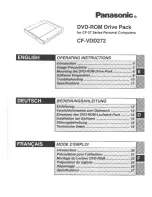
Figure 4–3 How Service Views the Suspect FRUs
If you consider the suspect FRU as a POINTER to the problem area rather than
the problem itself, an educated visual inspection, with perhaps some cable and
connector wiggling, should reveal the real problem.
A good visual inspection requires an understanding of how the autochanger acts
under normal operation. This understanding can be achieved by completing the
self-paced training for the autochanger and getting as much hands-on experience
as possible. If you are familiar with the moves of the carriage/picker assembly
during the FIND HOME sequence and you are familiar with the behavior of the
drive, you will be able to more easily detect the real problem pointed to by a
suspect FRU.
Note
The specific steps of the FIND HOME sequence and the possible errors
which may result are listed in Section 4.11, The FIND HOME Sequence
and Information Logs.
An example:
Say the autochanger fails with an error code of 4D (hexadecimal), ‘‘MOTION
ERROR CHECKING FOR CARTRIDGE IN THE PICKER,’’ and lists the picker
(FRU 27) as the most likely failure. However, when you observe the unit while
running the ‘‘Wellness Test’’ (test 2), you see that the picker is having trouble
flipping. As you manually move the carriage/picker assembly around and touch
the components that are involved, you notice that the picker belt is abnormally
tight. The belt is tight because the picker motor is skewed.
Troubleshooting and Diagnostics 4–13
Summary of Contents for RW504-ZA
Page 10: ......
Page 42: ......
Page 58: ......
Page 106: ......
Page 145: ...Figure 5 22 Optical Disk Library Exploded View Sheet 1 of 3 Removal and Replacement 5 39 ...
Page 146: ...Figure 5 23 Optical Disk Library Exploded View Sheet 2 of 3 5 40 Removal and Replacement ...
Page 147: ...Figure 5 24 Optical Disk Library Exploded View Sheet 3 of 3 Removal and Replacement 5 41 ...
Page 148: ......
Page 206: ......
Page 210: ......
Page 219: ...Voltage Configuration 2 10 Index 5 ...
Page 220: ......
















































